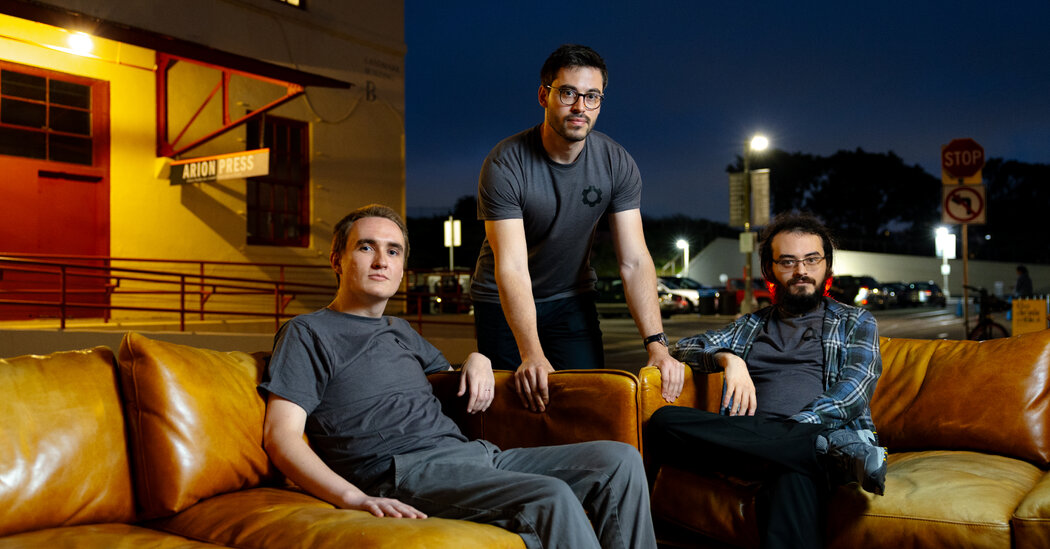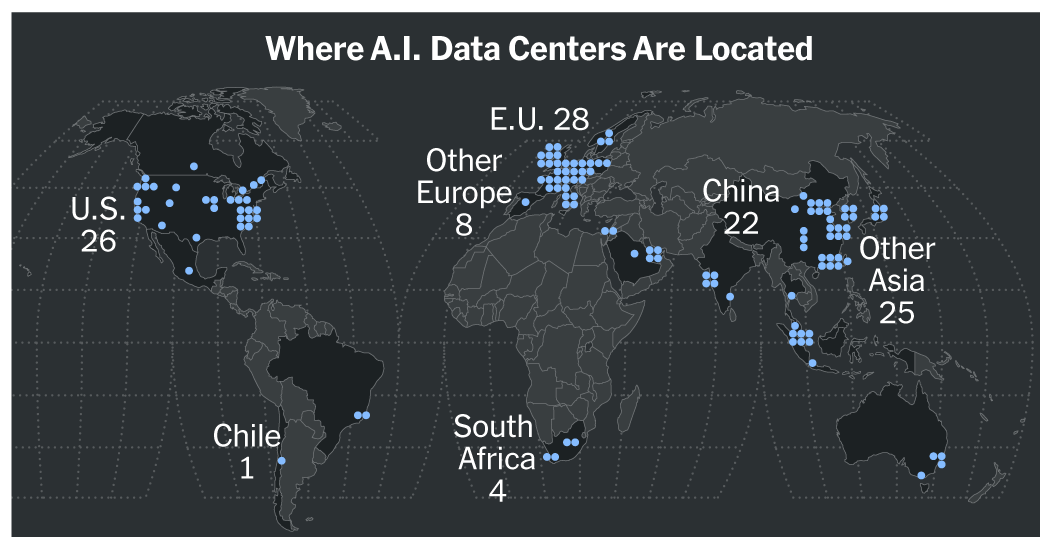Years ago, when I started writing about Silicon Valley’s efforts to replace workers with artificial intelligence, most tech executives at least had the decency to lie about it.
“We’re not automating workers, we’re augmenting them,” the executives would tell me. “Our A.I. tools won’t destroy jobs. They’ll be helpful assistants that will free workers from mundane drudgery.”
Of course, lines like those — which were often intended to reassure nervous workers and give cover to corporate automation plans — said more about the limitations of the technology than the motives of the executives. Back then, A.I. simply wasn’t good enough to automate most jobs, and it certainly wasn’t capable of replacing college-educated workers in white-collar industries like tech, consulting and finance.
That is starting to change. Some of today’s A.I. systems can write software, produce detailed research reports and solve complex math and science problems. Newer A.I. “agents” are capable of carrying out long sequences of tasks and checking their own work, the way a human would. And while these systems still fall short of humans in many areas, some experts are worried that a recent uptick in unemployment for college graduates is a sign that companies are already using A.I. as a substitute for some entry-level workers.
On Thursday, I got a glimpse of a post-labor future at an event held in San Francisco by Mechanize, a new A.I. start-up that has an audacious goal of automating all jobs — yours, mine, those of our doctors and lawyers, the people who write our software and design our buildings and care for our children.
“Our goal is to fully automate work,” said Tamay Besiroglu, 29, one of Mechanize’s founders. “We want to get to a fully automated economy, and make that happen as fast as possible.”
The dream of full automation isn’t new. John Maynard Keynes, the economist, predicted in the 1930s that machines would automate nearly all jobs, creating material abundance and leaving people free to pursue their passions.
That never happened, of course. But recent advances in A.I. have reignited the belief that technology capable of mass labor automation is near. Dario Amodei, the chief executive of Anthropic, recently warned that A.I. could displace as many as half of all entry-level white-collar jobs in the next five years.
Mechanize is one of a number of start-ups working to make that possible. The company was founded this year by Mr. Besiroglu, Ege Erdil and Matthew Barnett, who worked together at Epoch AI, a research firm that studies the capabilities of A.I. systems.
It has attracted investments from well-known tech leaders including Patrick Collison, a founder of Stripe, and Jeff Dean, Google’s chief A.I. scientist. It now has five employees, and is working with leading A.I. companies. (It declined to say which ones, citing confidentiality agreements.)
Mechanize’s approach to automating jobs using A.I. is focused on a technique known as reinforcement learning — the same method that was used to train a computer to play the board game Go at a superhuman level nearly a decade ago.
Today, leading A.I. companies are using reinforcement learning to improve the outputs of their language models, by performing additional computation before they generate an answer. These models, often called “thinking” or “reasoning” models, have gotten impressively good at some narrow tasks, such as writing code or solving math problems.
But most jobs involve doing more than one task. And today’s best A.I. models still aren’t reliable enough to handle more complicated workloads, or navigate complex corporate systems.
To fix that, Mechanize is creating new training environments for these models — essentially, elaborate tests that can be used to teach the models what to do in a given scenario, and judge whether they’ve succeeded or not.
To automate software engineering, for example, Mechanize is building a training environment that resembles the computer a software engineer would use — a virtual machine outfitted with an email inbox, a Slack account, some coding tools and a web browser. An A.I. system is asked to accomplish a task using these tools. If it succeeds, it gets a reward. If it fails, it gets a penalty. Then it tries again. With enough trial and error, if the simulation was well designed, the A.I. should eventually learn to do what a human engineer does.
“It’s effectively like creating a very boring video game,” Mr. Besiroglu said.
Mechanize is starting with computer programming, an occupation where reinforcement learning has already shown some promise. But it hopes that the same strategy could be used to automate jobs in many other white-collar fields.
“We’ll only truly know we’ve succeeded once we’ve created A.I. systems capable of taking on nearly every responsibility a human could carry out at a computer,” the company wrote in a recent blog post.
I have some doubts about whether Mechanize’s approach will work, especially for nontechnical jobs where success and failure aren’t as easily measured. (What would it mean, for example, for an A.I. to “succeed” at being a high school teacher? What if its students did well on standardized tests, but they were all miserable and unmotivated? What if the A.I. teacher learned to reward-hack by feeding students the correct answers, in hopes of improving their test scores?)
Mechanize’s founders aren’t naïve about the difficulty of automating jobs this way. Mr. Barnett told me that his best estimate was that full automation would take 10 to 20 years. (Mr. Erdil and Mr. Besiroglu expect it to take 20 to 30 years.)
These are conservative timelines, by Silicon Valley standards. And I appreciate that, unlike many A.I. companies working on labor-replacing technology behind closed doors, Mechanize is being candid about what it’s trying to do.
But I also found their pitch strangely devoid of empathy for the people whose jobs they’re trying to replace, and unconcerned with whether society is ready for such profound change.
Mr. Besiroglu said he believed that A.I. would eventually create “radical abundance” and wealth that could be redistributed to laid-off workers, in the form of a universal basic income that would allow them to maintain a high living standard.
But like many A.I. companies working on labor-replacing technology, Mechanize has no novel policy proposals to help smooth the transition to an A.I.-driven economy, no brilliant ideas about expanding the social safety net or retraining workers for new jobs — only a goal of making the current jobs obsolete as quickly as possible.
At one point during the Q&A, I piped up to ask: Is it ethical to automate all labor?
Mr. Barnett, who described himself as a libertarian, responded that it is. He believes that A.I. will accelerate economic growth and spur lifesaving breakthroughs in medicine and science, and that a prosperous society with full automation would be preferable to a low-growth economy where humans still had jobs.
“If society as a whole becomes much wealthier, then I think that just outweighs the downsides of people losing their jobs,” Mr. Barnett said.
Hey, at least they’re being honest.










